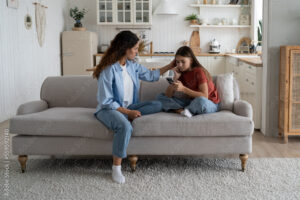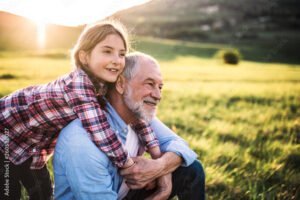![]() The debate topic was compelling, and both sides argued their side well. I also went back and forth on this topic even though I voted “against” in the pre-vote and post-vote. My thoughts have changed after reading the articles and watching the Tedtalks chosen by both debate teams. The statement “Social media is ruining childhood” is appropriate for debate but not for this post. The statement for the post needs to be, “How can social media be used, so it doesn’t ruin childhood?”
The debate topic was compelling, and both sides argued their side well. I also went back and forth on this topic even though I voted “against” in the pre-vote and post-vote. My thoughts have changed after reading the articles and watching the Tedtalks chosen by both debate teams. The statement “Social media is ruining childhood” is appropriate for debate but not for this post. The statement for the post needs to be, “How can social media be used, so it doesn’t ruin childhood?”
THOUGHTS FROM CLASS
The agree side chose the article “Associations of early social initiation on digital behaviors and the moderating role of limiting use.” The article stated that social media engagement could provide instrumental and social support if used under the right conditions. (Charmaraman et al., 2022). Eva Amin presented a similar idea in her talk, “Social Media isn’t bad: you’re just using it wrong.” I agree with Eva’s main message: that social media isn’t good or bad, it is how we choose to use it that matters. I also agreed with her points about the concept of welcoming the positivity of social media. Alec shared videos in class on Tuesday that illustrated this. There is something to be said about the power of positive thinking. I felt different after seeing the videos in class, particularly the video of elderly people and teens connecting. It was so moving. It reminded me of this article from CBC news. The elderly people and young children are connecting through face-to-face interactions, and they are not using social media. Yet the message is the same.
I keep going back to my main point that educators must teach about digital literacy as it is in the curriculum This includes how to use social media in safe and healthy ways. Students must be taught about the dangers of social media use, as outlined in the article by Freya India. She poses questions at the end of her article that must be addressed; that “the greatest psychological experiment we’ve ever run on humanity” is happening. It is also true that little is known about the effects of the early use of social technologies on early adolescence. (Charmaraman et al., 2022). More empirical evidence is needed to understand the impacts of digital technologies on younger adolescence and children.
Stories of the positive use of social media need to be shared with students. If we only share stories of the scary side of social media, the students will miss out on half of the story. Sebastián Bortnik defined education as coming from both experiences and knowledge. Students need to be taught how to use social media because it is here and a part of our lives. In class, Alec asked the question if we could go back to life before social media, would we? I admit I am one of the people who said yes, but the reality is that we can’t do that. Adults need to use social media in positive ways and support our children in learning how to do the same. Charmaraman et al. (2022) stated that high parental involvement, in the form of restrictive monitoring of social media use, had positive outcomes for children. This is the best way to ensure the harms of social technology are mitigated.

ON A PERSONAL NOTE
I shared in class that my husband and I gave our 12-year-old daughter her first Iphone and it came with a contract that she had to sign. One of the terms of the contract was that we would take the phone away if she misused the phone. The sad day came this past Friday. My husband was working out of town, and I was going through her texts with her dad on the phone. I saw things that gave us much concern. She was using highly inappropriate language; she was saying mean things about 1 friend to others, a precursor to cyberbullying. She was also texting somebody named “Mr. Beast” which caught my attention. The end result was that I took the phone away until her dad came home. I also got the unenviable job of telling her. After the initial blow-up was over and she had stopped crying (and started talking to me again), she explained what was going on. Her friends were doing those things, and she felt she had to do so as well. She thought that if she didn’t, they would stop being her friend, and then “she would have no one”. A couple of days passed and she said she was glad she had the break from her phone. She didn’t like the person she was becoming, and she was able to think about if she actually wants the other kids as her friends. She has the phone back with a plan only to use it at certain times. We will see how long this lasts, as there will be more problems, and she will likely have her phone taken away again. I saw my experience with her in the article “Associations of early social initiation on digital behaviors and the moderating role of limiting use.” High levels of parental involvement are necessary to help our kids navigate the world of social technology in healthy ways. I can see why some parents would want to avoid the drama, it is much work! Yet it is so necessary.
My stance on this topic is a repeat of last week’s blog post; technology is a tool, and how it is used is what is important.



Hi Laura, great post! I 100% agree with you and your statement “how can social media be used, so it doesn’t ruin childhood”. I feel that there is so much that needs to be taught about social media use in a appropriate way and we as educators can help in guide our students, but it also comes down to being what is taught and modeled in the home. I appreciate your story about your daughter and her phone use, it is important that we monitor what our kids are doing online, so they understand what they are doing is not right. We have the same policy about checking my 14 year old sons phone use as well – he as well had made a few bad choices in the beginning, but he is learning : )
“the greatest psychological experiment we’ve ever run on humanity” – Laura, I used this quote in my blog this week as well, as it really stood out to me as a pretty scary thought. The quote right after that talked something about how we are really only ten years into this experiment, so we haven’t yet been able to see the long term effects of social media on kids. I can’t remember where I read it – maybe someone else’s blog, or maybe it was one of the articles shared, but someone referenced the idea of restrictions and legal guidelines when we learn about negative effects of something. So, we learn smoking is bad, so we put laws in place about who we can sell to, how much we can sell, and we mandate that we tell people how bad it is for us. It will be interesting to see how the government reacts when studies of negative effects of social media are revealed. It’s pretty hard to implement social media restrictions!